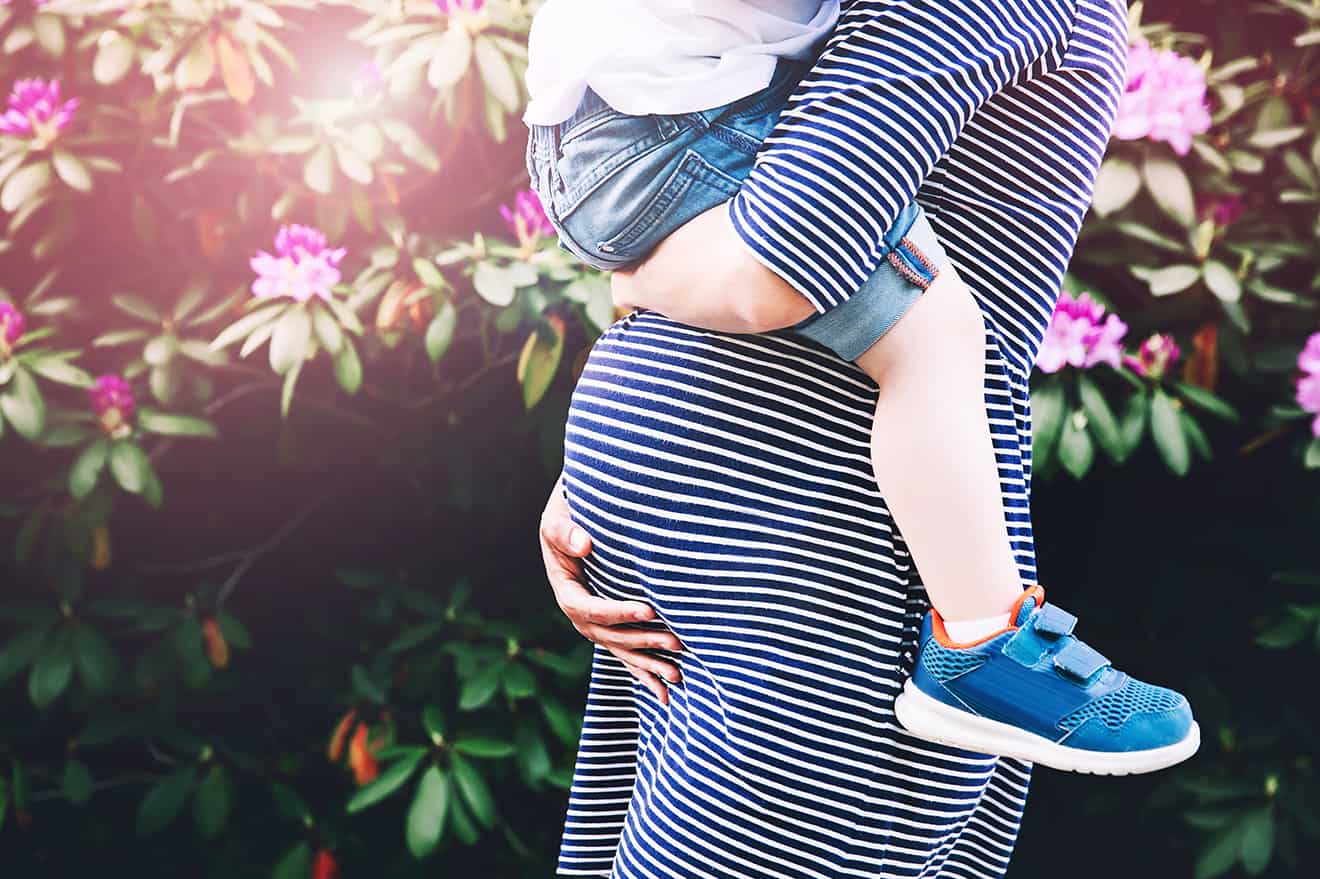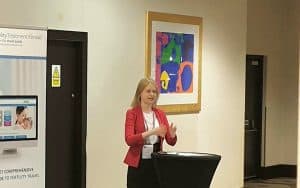5 September 2025
The case of R & Anor v A & Anor [2024] EWFC 341 involved a domestic (UK) surrogacy arrangement where intended parents sought a parental order without their surrogate’s consent. Specifically, the English Family Court was asked to dispense with the surrogate’s consent due to a lack of capacity following a traumatic brain injury giving birth. It serves as a sad example about some of the medical risks and complex legal issues that can arise during and after a surrogate pregnancy and birth and demonstrates the importance of legal safeguarding for all parties (surrogate, child and intended parents).
Background
Prior to unpacking the legal framework, it is important to consider the facts of this case to provide context as to why it was so complex.
It begins with a woman, who will be known as Mrs R, who had complications with the birth of her first son. She was subsequently advised by her doctor to not have any further pregnancies. As a result, when she and her husband – Mr R – wanted a second child, they chose to search for a surrogate.
In May 2023 they met their surrogate, Ms A, online. Ms A had acted as a surrogate for 20 years, on 3 separate occasions, as well as having children of her own, which made her a good fit for the couple’s wish for another child. Following the agreement that she would help the couple, they paid her just under £19,000 in expenses in relation to the surrogate pregnancy and birth. This would cover the costs of the pregnancy, as well as the loss of earnings she would have due to pregnancy and maternity leave.
Ms A underwent a successful embryo transfer in October 2023, following medical arrangements abroad, and conceived a baby boy known as O. The embryo used comprised both Mr R’s sperm and Mrs R’s eggs which made them the biological parents of the boy. During the pregnancy, Mrs R had close contact with Ms A, and she attended her scans and consultant appointments. She was intent on being involved in the process, and Ms A was supportive of this. However, Ms A’s pregnancy was not straightforward. She suffered several bleeds throughout it because of a low-lying placenta. Then, at 30 weeks in May 2024, she had a bleed which led her to hospital. On the way she messaged Mr and Mrs R in anticipation of complications and an early birth saying ‘On way to hospital…bleeding! I don’t know if you want to make your way or I can let you know what they say’.
At the hospital, Mr and Mrs R found out that Ms A had been taken to the operating theatre and suffered a cardiac arrest during an emergency Caesarean section. This was due to an anaphylactic reaction to the anaesthetic, which left her with a hypoxic brain injury. Additionally, baby O initially wasn’t breathing after birth and was sent to a neonatal intensive care unit. This was shocking and upsetting for everyone involved.
Baby O’s condition stabilised quickly and Mr and Mrs R were admitted into the NICU. He was discharged after two weeks and on 24 May 2024 he was made a ward of court on the basis that he would be placed with Mr and Mrs R. Mrs Justice Judd went on to discharge the wardship order and make an interim child arrangements order in favour of Mr and Mrs R on 25 June 2024 as baby O thrived in their care, had put on weight and met all his milestones adjusted for his prematurity.
In comparison to baby O, Ms A’s condition was much more severe. She was in critical condition for several days and was left comatose for a fortnight. Her brain injury left her with seizures and behavioural changes, where she needed help with feeding and basic tasks. She began to improve slightly by the end of July 2024 where she could count from 1 to 10 and say the days of the week, albeit with some errors. However, she was still unable to answer most simple questions or consider multiple choices. Even once she was discharged to a rehabilitation centre on 30 July 2024, she required 24-hour monitoring for safety and was unable to understand complex discussions.
Parental Order Application
Following baby O’s birth, Mr and Mrs R applied for a Parental Order to become his legal parents and proceeded to an initial court hearing on 25 June 2024. They then went to final hearing on 19 November 2024 in the Family Division of the UK High Court before Mrs Justice Judd. The case was legally complex primarily because the grant of a Parental Order, following surrogacy, requires the surrogate’s full, valid and informed consent over which she retains a power of veto. This is because a surrogacy agreement is not legally binding under English law and because the surrogate is the legal mother by virtue of carrying the pregnancy and giving birth to the child. Consequently, a surrogate’s consent is required to extinguish her legal parental status and enable the grant of a parental order.
However, due to the serious nature of Ms A’s brain injury, she was not considered to be in a position to provide such consent. On 22 July 2024 Ms A was certified as lacking litigation capacity and she became represented by the Official Solicitor. So, the question arose as to whether the surrogate’s consent could be legally dispensed with and if so on what basis.
Images: The Royal Courts of Justice, Strand, London
Legal Framework
In determining Mr and Mrs R’s application for a parental order, the English Family Court was tasked with carefully scrutinising the provisions set out in section 54 of the Human Fertilisation and Embryology Act 2008 (HFEA 2008). Mr and Mrs R invited Mrs Justice Judd to determine that the criteria for section 54 of the HFEA 2008 had been satisfied, and all that was required was to dispense with the requirement for Ms A’s agreement as she was incapable of providing it. However, in doing so this raised complex legal issues.
Mrs Justice Judd carefully considered the fact that Mr and Mrs R had paid Ms A just under £19,000 in relation to their surrogacy arrangement. The Guardian, appointed to represent baby O, prepared a detailed report to the court and took the view that this aligned with other domestic (UK) surrogacy arrangements, including expenses for loss of earnings and undergoing a Caesarean section operation, even though Mr and Mrs R did not ask for receipts as a matter of trust. Additionally, the Guardian took the view that Mr and Mr R had not sought to undermine Ms A’ free will or exploited her and invited the court to authorise the payments as compliant with s54 HFEA 2008. Mrs Justice Judd therefore approved the payments.
Having determined that other relevant legal criteria had also been met, the main issue in the case therefore centred on sections 54(6) and 54(7) of the HFEA 2008 and the requirement for the surrogate’s consent to the grant of a parental order. Subsection 6 states that the court must be satisfied that the woman who has carried the child has freely and with full understanding of what is involved, agreed unconditionally to the making of the parental order (known as informed consent). Subsection 7 states that there is an exception to 54(6), however, where a person cannot be found or is incapable of giving agreement.
Mrs Justice Judd noted that “Counsel have not been able to find any reported decisions in which it has been decided that the woman who carried the child (or any person whose agreement is required pursuant to that subsection) is incapable of agreement”. Instead, there had only been cases involving overseas surrogates who could not be found where the English Family Court had proceeded to dispense with their consent in their absence. This was seen in the case of Re D and L (surrogacy) [2012] EWHC 2631 (Fam) where it determined that if the court followed 3 criteria, a surrogate’s consent could be dispensed with if:
- Reasonable steps had been taken to locate the surrogate.
- It took into account evidence that the woman did consent, even if it was within 6 weeks of the child’s birth.
- The child’s welfare was taken as the paramount consideration.
Furthermore, there was no provision in s54 HFEA 2008 to override the consent of the surrogate. As such, the English Family Court was asked for the first time to determine that Ms A was incapable of giving consent to the grant of a parental order.
Mrs Justice Judd noted that section 1 of the Adoption and Children Act 2002 (ACA 2002) applied to the grant of a parental order so that the child’s welfare throughout his life is the court’s paramount consideration. Within the ACA 2002 (s1 being imported into S54 HFEA 2008), there was provision to dispense with consent of a parent or guardian, when placing a child for adoption. She went on to determine that whether Ms A was incapable of giving agreement pursuant to s54(7) was a question of fact to be determined by the court, giving the words their ordinary meaning, and that the capacity concerned was wider than that defined in the Mental Capacity Act 2005. In doing so, she found that the court was likely to consider the surrogate’s ability to understand, retain and communicate the information relevant to the decision and could take into account other issues as well.
Having carefully considered the medical evidence in respect of Ms A, Mrs Justice Judd noted that Ms A was not able at that time time to understand complex discussions as her information processing remained impaired in multiple areas. As such, she ruled that Ms A was incapable of giving her agreement pursuant to s54(7) HFEA 2008. She also considered the evidence about Mrs A’s understanding of the arrangement and how she was fully committed to Mr and Mrs R becoming the legal parents of baby O. This included the fact Ms A had acted as a surrogate on 3 separate occasions across 20 years, had allowed Mrs R to attend scans and consultant appointments, as well as additional information provided by Mrs A’s partner. He described how she was entirely motivated by her wish to help others, and so would have approved of the order if she was capable of doing so.
Mrs Justice Judd went on to grant a parental order in respect of baby O in favour of Mr and Mrs R in order to best meet O’s welfare needs as he had been living with Mr and Mrs R since he was two weeks old and was their much wanted and loved child. She ruled that it had always been intended that he would be raised by Mr and Mrs R and they could provide him with a stable family life which is what he needed. In so doing, she determined that it was possible legally dispense with the consent of a surrogate in the event they lack capacity to provide informed consent to the grant of a parental order.
Important Takeaways
The messages from this case are mixed. On the one hand, it demonstrates how surrogacy can help intended parents that would otherwise be unable to conceive and have a child naturally. However, it also demonstrates some of the medical risks and complex circumstances and legal issues that can arise in a surrogacy context.
Nevertheless, despite the difficult circumstances in this case, it serves as a positive example of how the law on surrogacy is continuing to evolve for the better. It is becoming more developed in navigating the complex situations and issues that can arise during and after a surrogate pregnancy and birth. It also continues to uphold the welfare of the child as the paramount consideration, whilst also aiming to protect all involved to the greatest degree possible.
Specialist Surrogacy & Family Law Advice
Complex surrogacy law and the wider challenges and risks associated with a surrogacy arrangement make it important for all parties to obtain specialist legal advice at the outset and to ensure that the legal criteria for a parental order can be met.
Click here to learn more about surrogacy law in England and Wales.
Click here to learn more about international surrogacy law.
We provide a range of specialist legal strategies and solutions to assist with the management of surrogacy law, family law, legal parentage, parental responsibility, birth certificates and the upbringing of surrogate born children. If you are considering, or are part way through, a surrogacy arrangement in the UK or internationally and you would like to discuss your situation or you require specialist fertility, surrogacy and family law assistance contact Louisa Ghevaert by email louisa@louisaghevaertassociates.co.uk or by telephone+44 (0)20 7965 8399.
Images: Louisa Ghevaert CEO and Founder Louisa Ghevaert Associates
To find our more about Louisa Ghevaert click here.









